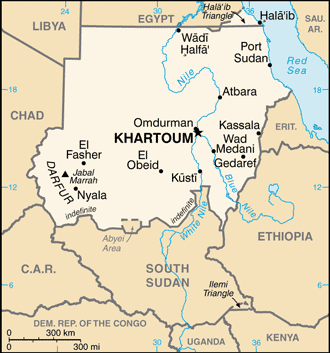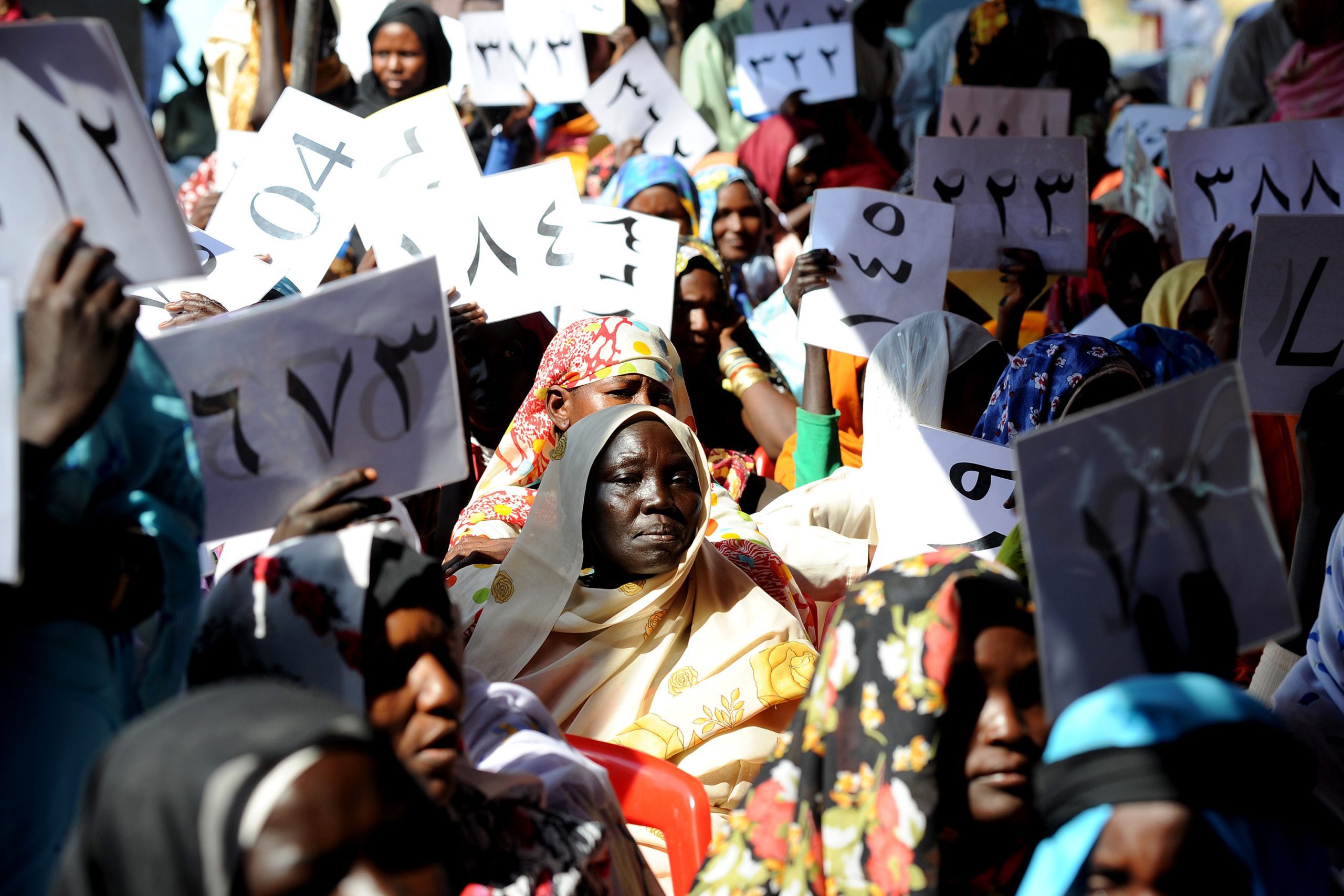Amid the continuation of Sudanese civilians’ protests against the October 25th military crackdown of the transitional trajectory, and the ongoing functionality gap of a civilian-led government representation in Sudan, the Special Representative of the Secretary-General (SRSG) for Sudan and Head of the United Nations Integrated Transition Assistance Mission in Sudan (UNITAMS), Mr. Volker Perthes announced the formal commencement of an UN-facilitated intra-Sudanese political dialogue initiative process that aims to bring all Sudanese stakeholders into a common understanding and consensus on the way forward to reinstate the political transition in Sudan.
The UNITAMS mediation of a Sudanese political dialogue has gained remarkable support from the international community, in addition to the USA efforts to resolve the political unrest in the country. However, these supporting efforts are not adequate to guarantee tangible results for Sudan’s political stability as several barriers jeopardize the success of the international, and regional community undertaking to strengthen the UNITAMS initiative.
Under UN resolution UNSCR 2524, the UNITAMS mission is deployed in Sudan to work under a specific mandate to assist the political transition, supporting the peace process and peacebuilding, and to carry on the promotion and protection of human rights, underpinning mobilization of economic and development assistance, while coordinating humanitarian assistance under UN agencies. However, a year after the appointment of the SRSG and the beginning of UNITAMS’s work on the ground, it is evident that the mission has struggled in achieving its mandate. For instance, the mission has failed to deliver any remarkable development in the peacebuilding process. Instead, the militias in Darfur continue to threaten the local peace and security. The proliferation of the militias has continuously negatively impacted the ongoing humanitarian assistance coordination as the World Food Programme (WFP) suspended its operations in El-Fasher, North Darfur State, following military attacks on their warehouses in the State capital city in December 2021. In the meantime the UNITAMS initiative also failed to meet its commitment to the promotion and protection of human rights in Sudan, as the daily death of anti-coup protesters has continued to increase. Along with the escalated civilian demonstrations against the October 25th military coup, the UNITAMS stands powerless against the ongoing brutality and disproportionate use of violence by the junta militia against the protesters. The violence, continuous repression and unlawful detentions amongst the resistance committees’, women’s advocates and human rights activists provoked the UN human rights organ OHCHR to issue a statement that urged Sudanese authorities to halt excessive use of force against the civilian protesters.

From day one, the military component in the Sudan Sovereignty Council played a key role in weakening the effectiveness of UNITAMS mandated role in Sudan and strived to lay down every possible obstacle to hinder the UNITAMS mandate. That was demonstrated in the frequent interference by the members of the Sovereignty Council in the scope of work of the National Mechanism for Coordination with UNITAMS. Such a mechanism was formed under a decree by the former PM Abdallah Hamdouk. General Shameldin Kabbashi and General Ibrahim Jabir had formed a parallel mechanism composed of experts from the Ministry of Foreign Affairs to challenge the progress of the UNITAMS Status of Mission Agreement (SoMA) that was initially led by the (Hamdouk’s) National Mechanism Committee. The contradiction between the two mechanisms led to debilitating the mission operation as well as the resignation of its National Coordinator. Since the military component will spare no efforts to stay on top of power and continue sabotaging the democracy transition, it’s also an early indicator of the potential failure of the UNITAMS mediation of the Sudanese political dialogue.
In addition to the political divisions amongst the influencing stakeholders, the domestic security context in Sudan is very fragile. The October 25th military coup resulted in a profound complication in the consequent peace and security arrangement in Sudan after the signatory of the Juba Peace Agreement (JPA). The agreement signed between the transitional government and many rebel movements in October 2020 aimed to pave the way for a comprehensive peace process that would put an end to a prolonged civil war in Sudan. However, the consequent security arrangements related to the Disarmament, Demobilization and Reintegration processes are now halted until further notice. The suspension of the JPA security arrangement also led to the massive deployment of the fully weaponed rebel movements in the capital Khartoum as well as in the biggest cities of the state. The failure in achieving the peace and security arrangements stipulated in the JPA will increase the civil conflicts, which will lead to continuation of displacement and human rights violations in Sudan, that might affect the ongoing UN political peace process in the country. Moreover, the critical economic conditions following the suspense of the international financial assistance also contribute to increasing the overall security fragility.
An additional critical dynamic that negatively affects the efforts of the UNITAMS – Sudanese political dialogue, is represented in the ultimate abstention of the Coordination of the Sudanese Resistance Committees to engage in any type of dialogue or compromise with the military component. The Resistance Committees lead the Sudanese people’s protests on the ground to carry on with the unique demand of the unconditional power handover to a civilian government as stipulated in the interim constitutional declaration. Moreover, the Coordination of the Sudanese Resistance Committees accused Mr. Volker Perthes of violating the UN resolution UNSCR 2524 when he urged the Sudanese people to accept al-Burhan-Hamdouk bilateral political agreement.
A number of local dimensions are also seriously threatening the success of the UNITAMS initiative. Relatedly, the success of the UNITAMS initiative is threatened by the political polarization and division amongst other civilian organizations. For example, the Sudanese Professional Association (SPA) who led the coordination of the protests in December 2018, had joined the Resistance Committees’ in refusing the participation in the UNITAMS political dialogue, while the transitional government partner ans the 2019 constitutional declaration signatory party, the Forces for Freedom and Change Coalition (FFC) has agreed to join the Sudanese political dialogue. The inconsistent perspectives and actions of the revolutionary civilian organizations will therefore likely increase the fragility of the UNITAMS political dialogue initiative. Simultaneously the division among the civilian organizations provides an opportunity for the alliances of the dissolved National Congress Party (NCP) to attempt to restore their power that was taken when the former dictator was ousted in April 2019.
The military junta is also deepening their overruling and leading the country to convene an election process despite the unconducive environment that prevails in Sudan and General al-Burhan has ordered the acting ministries undersecretaries to carry out the duties of the Ministers within a framework of a temporary civilian government set up to pave the way for holding the elections. Moreover, al-Burhan distributed a decree to establish a Supreme Council of the Sudanese Army Forces (SAF), appointing himself a chairperson and composed of members of the junta in addition to General Hemedti and his brother Abdelrahim Daglo. The appointment of Hemedti the leader of the Rapid Support Militia who committed war crimes in the Darfur region, will contribute to escalate the frustration of the Sudan Army Forces officers against General al-Burhan. It is possible that Al-Burhan seeks to raise a shield that protects him from the potential military coup of the junior ranking officers. Accordingly, the UNITAMS efforts of reinstatement of the transitional trajectory is severely threatened by the political polarization and divisions amongst the national SAF.
Accordingly, the international community and the UNITAMS must recognize that any political solution that doesn’t respond to peoples’ desires should not be used to pave the way for the restoration of the democratic transition. Comprehensive political solutions should include efforts from the international community to work to listen to young people’s voices through the establishing of mechanisms of direct communication with this widespread population sector and the bodies representing them. Youth groups should also be acknowledged as independent political voices that have the power to assert some political balance in future rounds of dialogues. Moreover, the international community should synergize their efforts to monitor and guard the portfolio of the security arrangement, reintegration, and demobilization as an essential step to ensure the success of the UNITAMS political dialogue process. Furthermore, it’s high time that the United States consider the activation of the targeted sanctions against the junta generals as an appropriate response to al-Burhan’s expansion of power.
Maha Tambal is a Hubert H. Humphrey Fellow at American University Washington College of Law. She has served as Civil Society Organizations Coordinator at the National Democratic Institute, Sudan Office under Consortium for Elections and Political Process Strengthening program to support the democratic transition in Sudan, among many other engagements in INGO:s. Ms Tambal has also worked with UN Women in gender mainstreaming in the Darfur peace process under Doha Peace Agreement (DPA) and the UNSCR 1325. Her work on migration and enhancing resilience between refugees and host communities in the Horn of Africa was delivered under the Samuel Hall Think Tank, EU Trust Fund, and the Dutch MDF.

